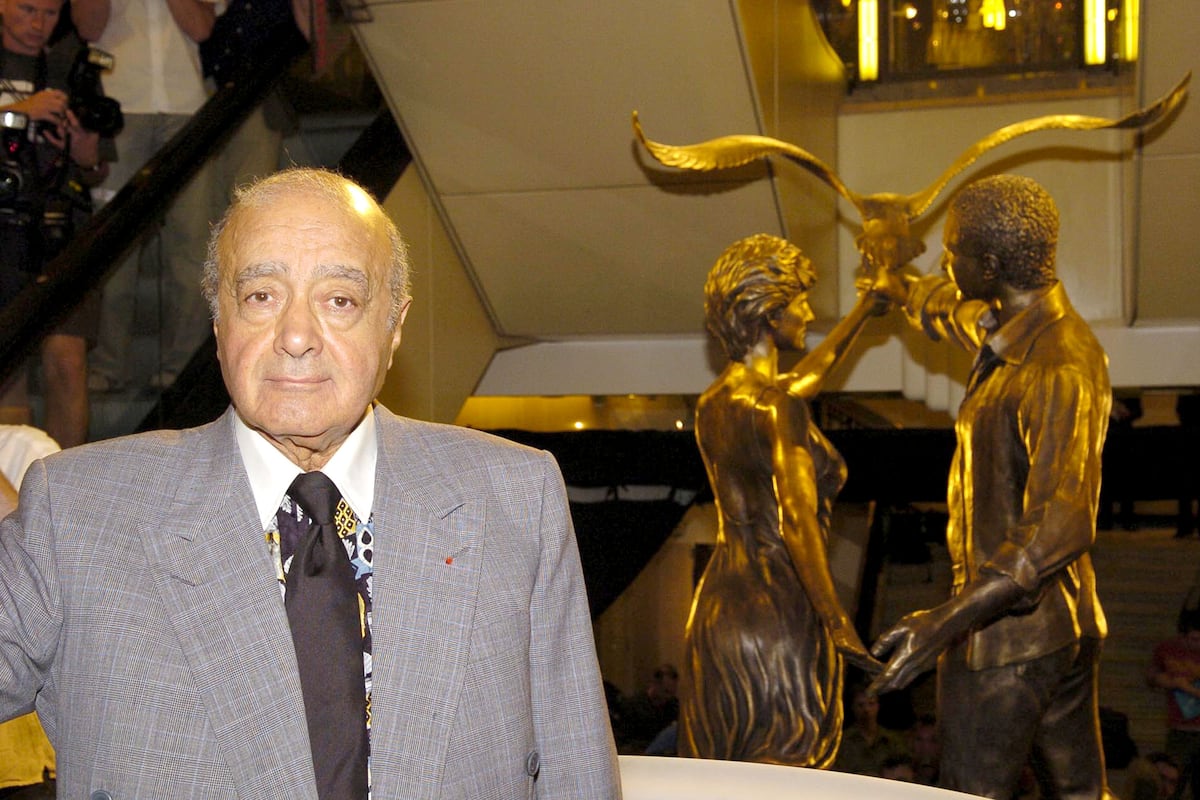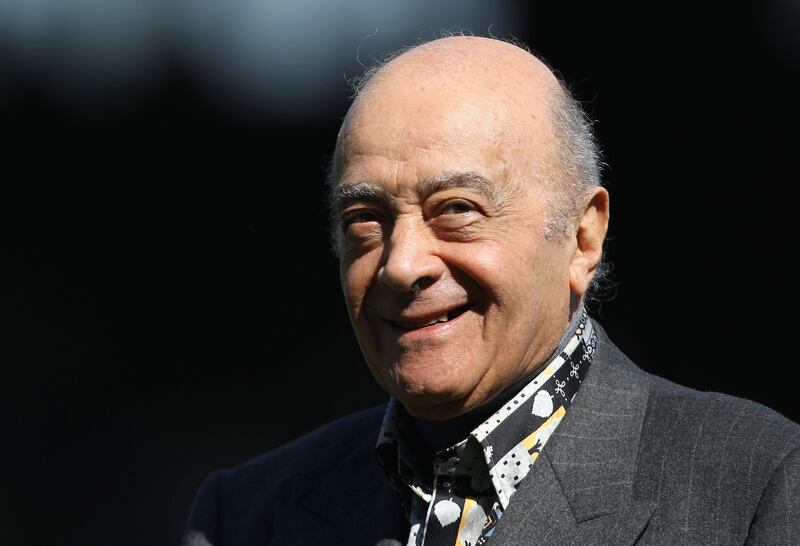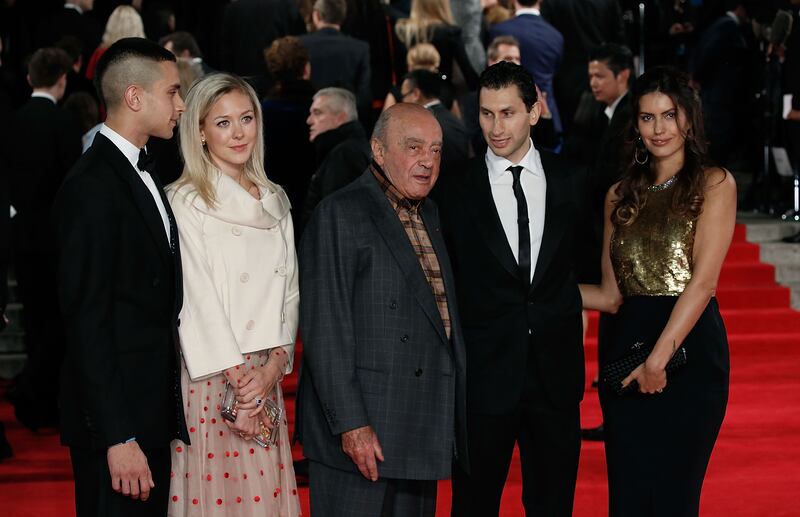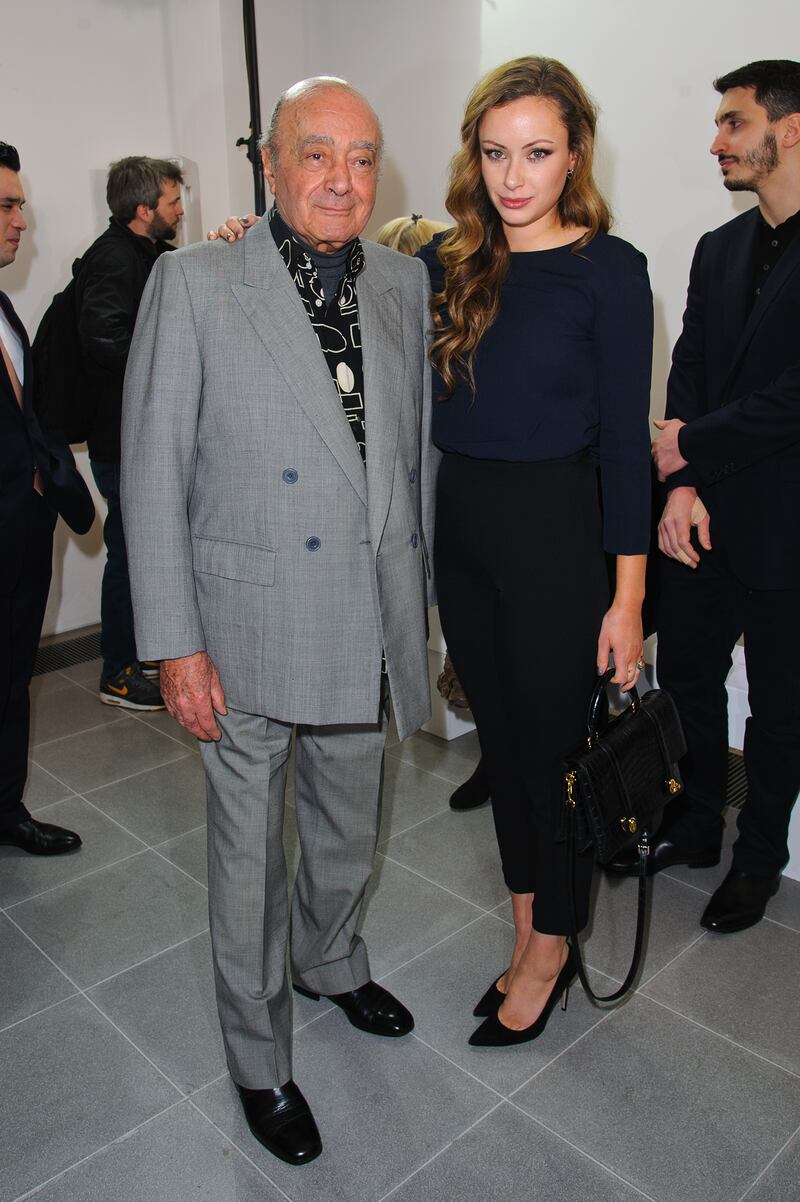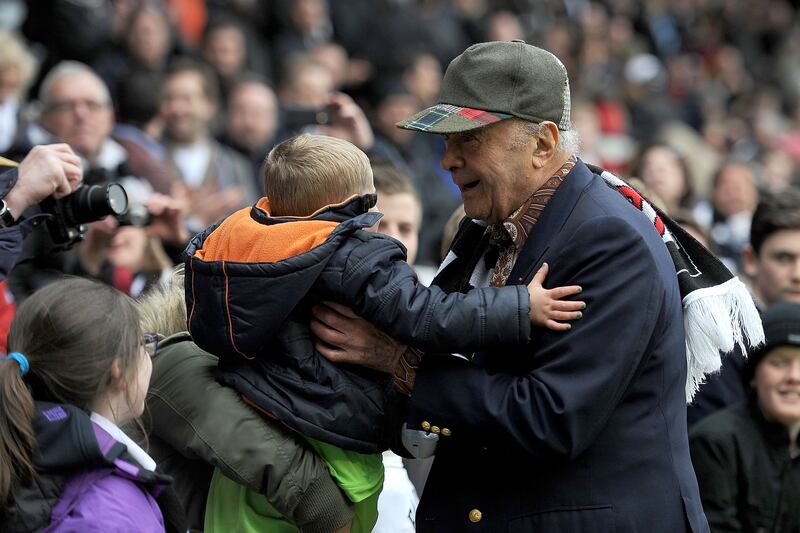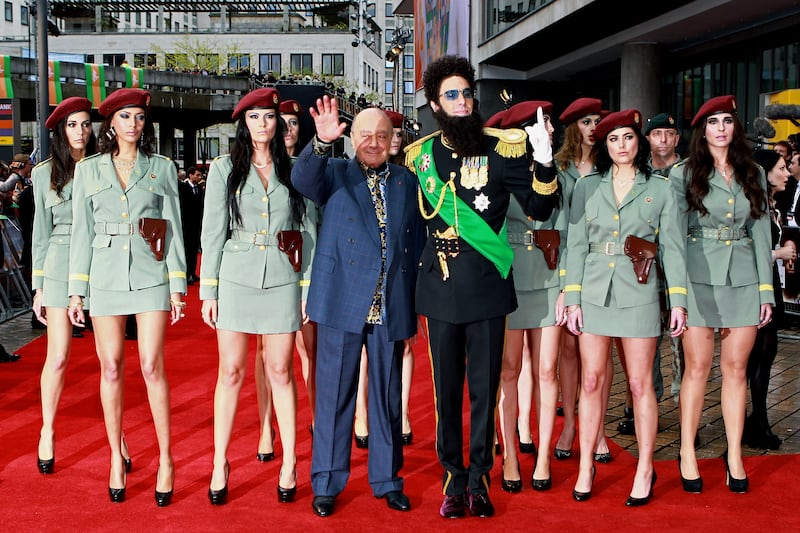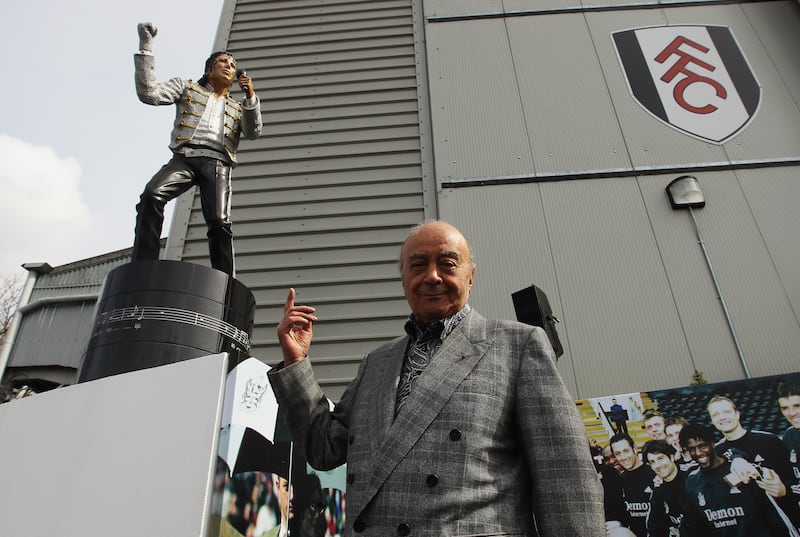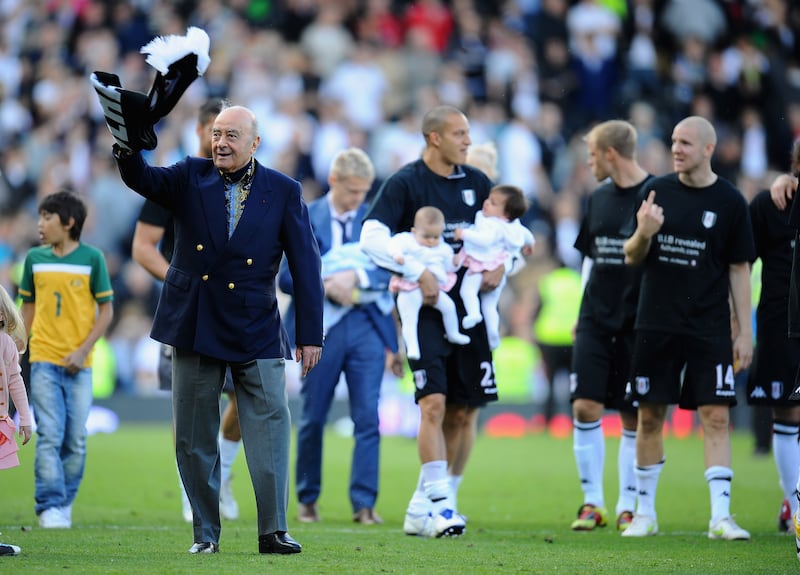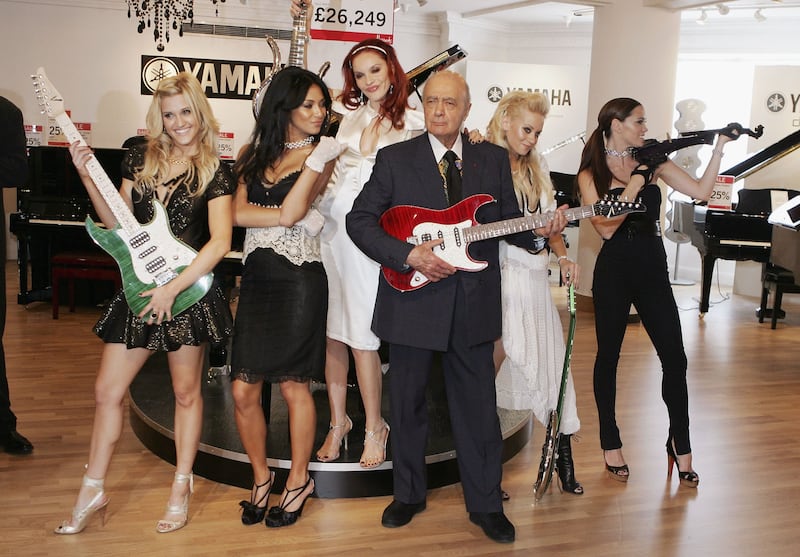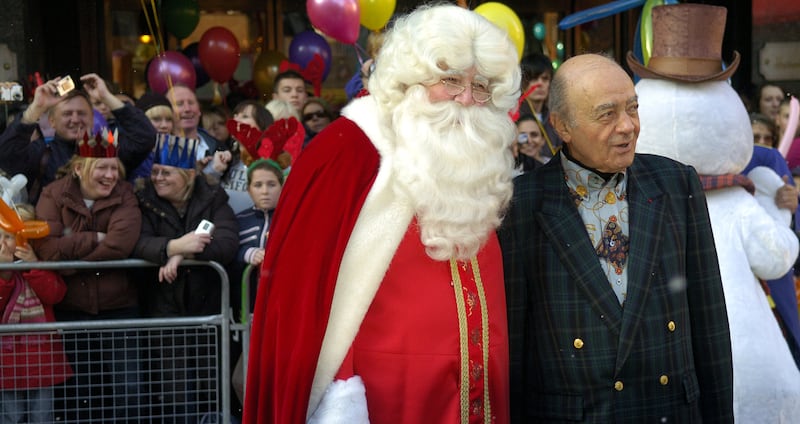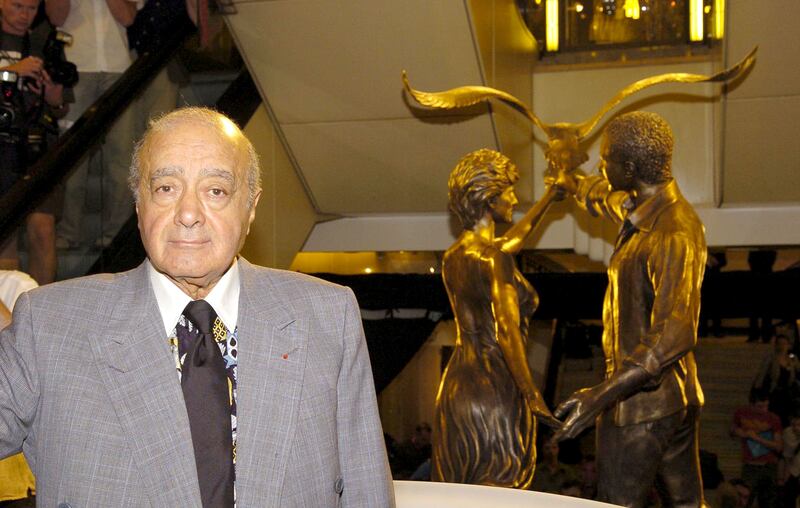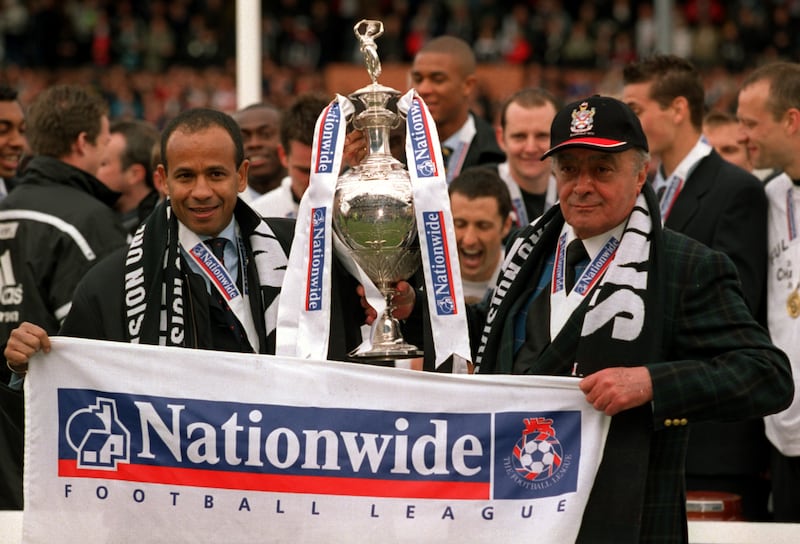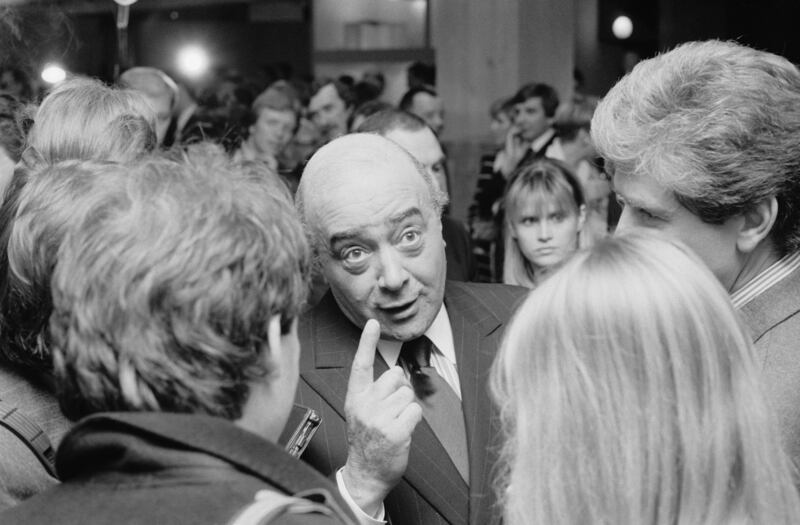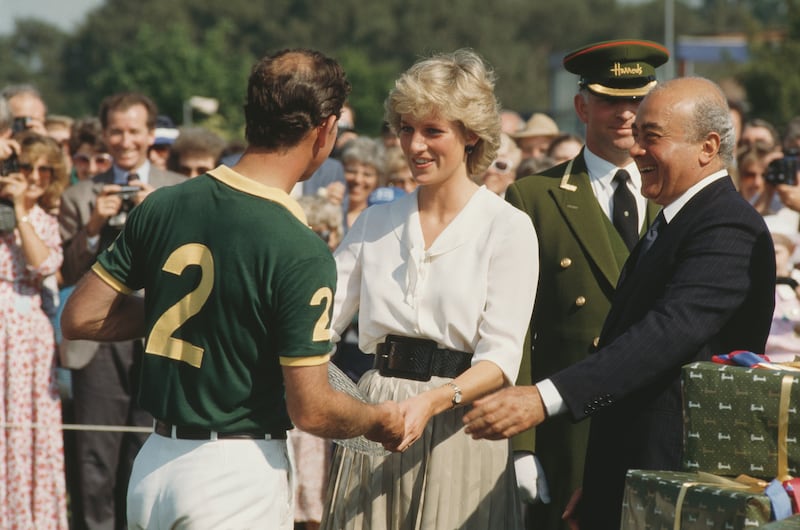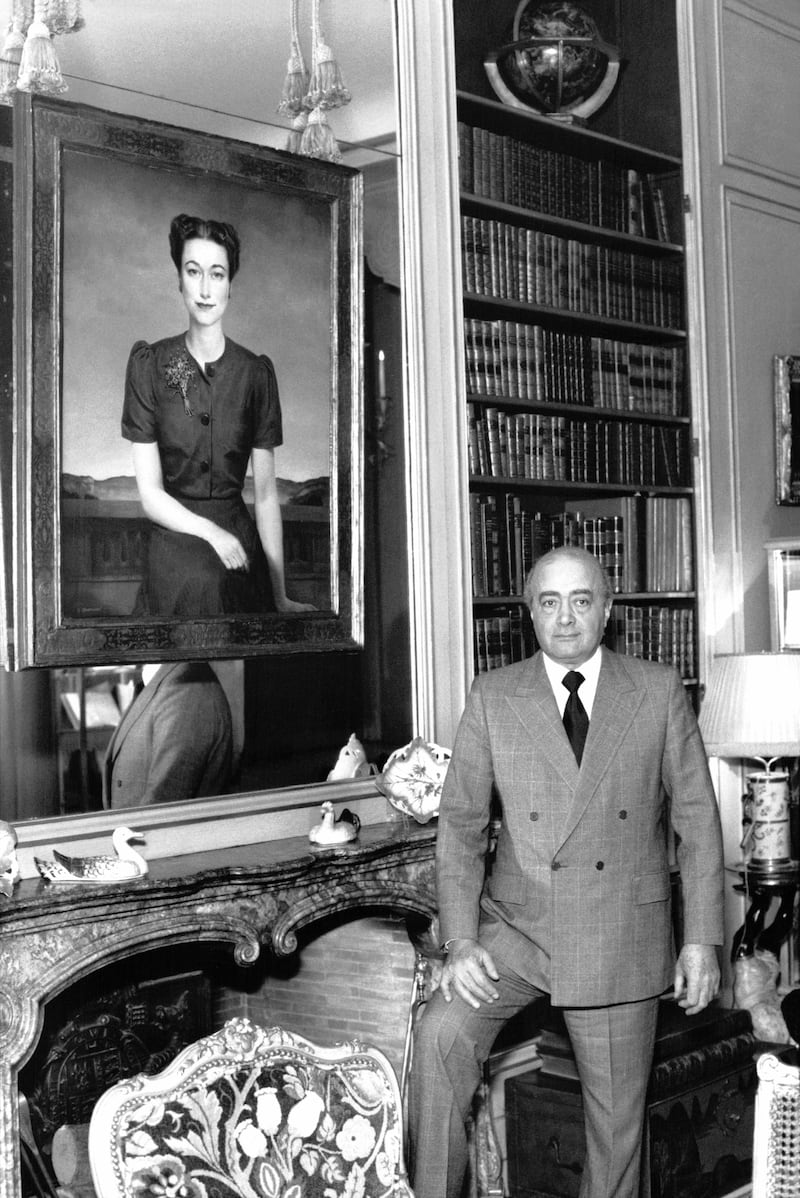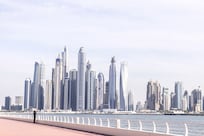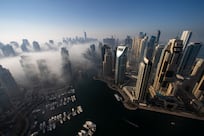Mohamed Al-Fayed, the Egyptian tycoon and long-time owner of Harrods in London, has died aged 94. In the 1960s and 70s he was involved in modernising Dubai.
He was the father of Dodi Fayed, killed alongside Princess Diana in a Paris tunnel car crash in 1997, the only child from his marriage to Samira Khashoggi, the Saudi Arabian writer. Al-Fayed also owned the Ritz Paris hotel and Fulham FC, the west London football club.
Born Mohamed Fayed in 1929 in Alexandria as the eldest son of a teacher, he grew up in the city, where his commercial enterprise shone even in his school days as he turned his hand to selling home-made lemonade. He married Khashoggi in 1954 and was employed in a trading company managed by her brother Adnan, a successful businessman and at one point the world’s wealthiest arms dealer. Al-Fayed then set up a shipping firm in Egypt with his brothers and spent time in Genoa and London expanding the venture.
As his business interests took off, Al-Fayed forged strong links with powerful figures across the globe, such as Francois Duvalier, president of Haiti. The late Sheikh Rashid Al Maktoum authorised Al-Fayed to help change the face of the emirate and the Egyptian hired British companies to carry out construction for the development.
He served as financial adviser to the sultan of Brunei in the 1960s and founded the International Marine Services repair yard in Dubai in 1972.
He settled in London where he added the 'Al' to his surname and acquired considerable holdings, including the Paris Ritz in 1979. Al-Fayed became embroiled in a bitter takeover tussle with mining company Lonrho, owned by ‘Tiny’ Rowland, for the House of Fraser, which controlled Harrods.
He was forced to demonstrate his solvency after the UK government accused him of misreporting his means of funding the bid, and ultimately achieved his takeover. But this was a precursor to frequent clashes with the British establishment.
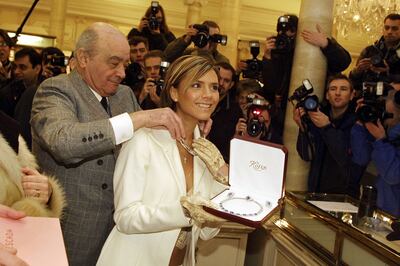
The so-called cash-for-questions scandal of 1994 hardly helped, when Al-Fayed identified ministers he said had accepted money in exchange for asking questions on his behalf in parliament. A long-running furore ensued over the “cash-in-brown-envelopes” revelations and a new committee was formed to oversee standards at Westminster, even though many questioned the veracity of Al-Fayed’s claims. Perhaps this conflict and others – Al-Fayed was considered instrumental in ruining the careers of several Tory politicians, such as Neil Hamilton – contributed to thwarting his persistent ambition for British citizenship, for which several attempts proved fruitless. “I have two Filipino nannies who have [a] British passport and not me. I don't need [a] British passport. When you were running around in an animal skin, my ancestors were building the pyramids,” he once said, in an attempt to play down his aspirations.
But the deaths of Dodi Fayed and Princess Diana, who were romantically linked, led to a collapse of relations with the establishment, this time involving the British royal family. Frustrated by a perceived lack of progress with the official probe, Al-Fayed hired his own private investigator to oversee proceedings as he harboured suspicions, persisting with the theory that the royal family had ordered an execution.
“They’ve been murdered,” he insisted on 60 Minutes in 1999. Pressed as to why anyone would want the pair dead, he claimed it was because the royal family “still don’t accept that Dodi … could be the stepfather of the future king”. In 2008, an inquest cleared the British secret service and the royals of any wrongdoing but Al-Fayed remained unrepentant in his claims.

He bought Fulham in 1997 for a reported £6.25 million ($7.71 million) and installed Kevin Keegan, then Jean Tigana, as manager and two promotions cemented Premier League status. Not only did Al-Fayed invite his friend Michael Jackson to a match at Craven Cottage – of whom goalkeeper Maik Taylor said had “an aura about him and we were blown away by it all” – he commissioned and erected a statue of the “King of Pop” on a plinth inside the ground, an apparent tribute upon the singer’s death. There it stood for three years until it was returned to Al-Fayed in 2013 by Fulham’s new owner Shahid Khan, who had bought the club for £300 million. By this time, Al-Fayed had sold Harrods to Qatar Holdings for £1.5 billion and had made it on to The Sunday Times Rich List.
Al-Fayed was known as a colourful, voluble and fervent character, blessed with sharp business acumen, whose approach at times strayed into the unconventional. He did contend of himself, however: “I'm not intense at all. I'm always relaxed.”
He was awarded the Freedom of the Scottish Highlands in 2002 by the regional tourist board, acknowledging his “outstanding contribution and commitment” to the area. There, he had established a popular visitors’ centre at the Falls of Shin, at the entrance to which people encountered by a towering statue of a kilted Al-Fayed in full traditional Scottish regalia.
The Al-Fayed Charitable Foundation was set up in 1987 to help ill and needy children, and works alongside charities that assist disabled and neglected youngsters in Britain, Thailand and Mongolia. Al-Fayed also received the Plaque de Paris, after restoring and reopening a Parisian villa belonging to the duke and duchess of Windsor. In 1985 he married the Finnish socialite Heini Wathen, with whom he had four children.
